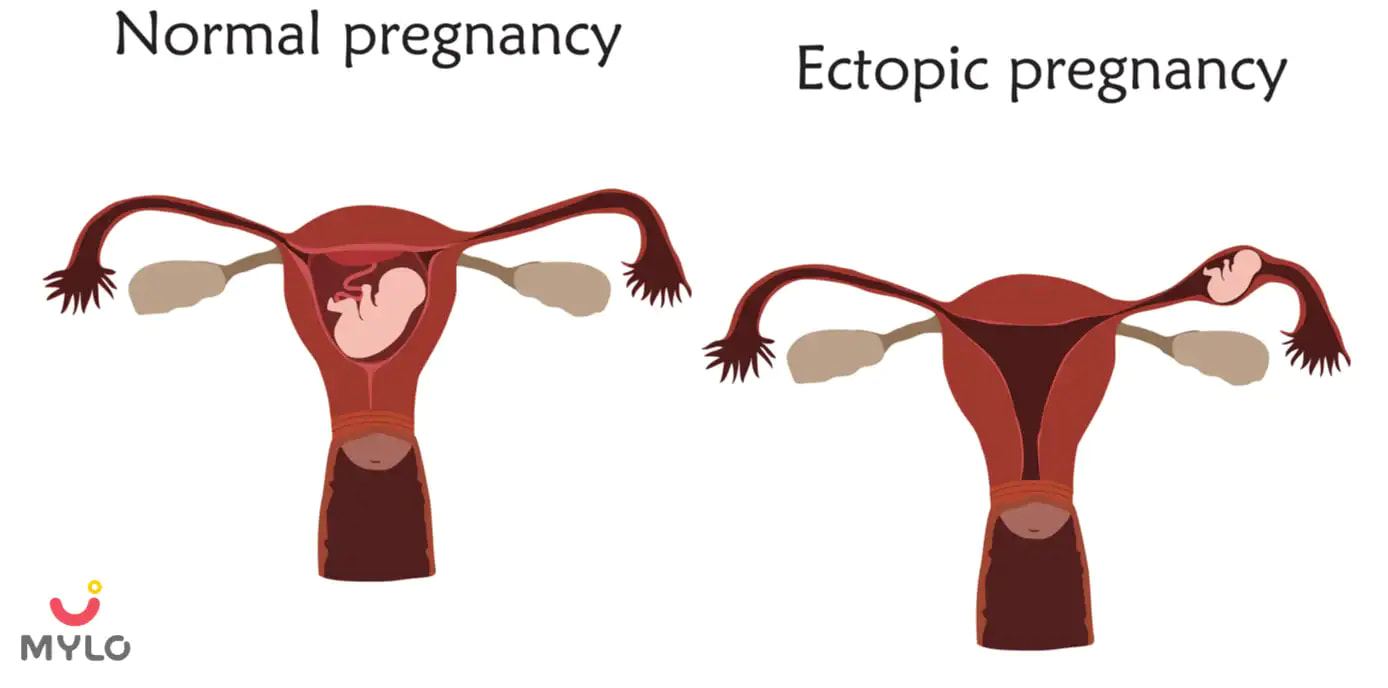Home

Betnesol Injection in Pregnancy: The Ultimate Guide to Benefits and Risks
In this Article

Pregnancy Complications
Betnesol Injection in Pregnancy: The Ultimate Guide to Benefits and Risks
Updated on 17 January 2024
Pregnancy is one of the most delicate phases in a woman's life. And sometimes to protect the well-being of both mother and baby during pregnancy, doctors may suggest some medications. One such medication that has gained attention is betnesol injection in pregnancy. From its role in lung development to potential side effects, we'll explore the key aspects every expectant mother should know.
So, let's embark on this ultimate guide to betnesol injection uses in pregnancy, the reasons it may be administered, potential side effects and ways to minimse them as well as some alternatives to it.
What is Betnesol Injection?
Betnesol (betamethasone sodium phosphate) is an injectable corticosteroid hormone. It is a synthetic version of the naturally occurring hormone cortisol, which is produced by the body to help control inflammation. Betnesol is most commonly used to treat conditions such as asthma, allergies, and arthritis. It can also help prevent preterm labor and treat conditions that can lead to preterm labor such as cervical insufficiency.
Betamethasone injection is a prescription medication and should only be taken under the supervision of a healthcare professional. It is available in two forms: an intramuscular injection and an intravenous infusion. The intramuscular injection is given in a single dose and the intravenous infusion is given over a period of time. The dosage and frequency of administration will depend on the condition being treated and the patient's individual response to the medication.
Why is Betnesol Injection Given During Pregnancy?
A betnesol injection is only given during pregnancy if there is no alternative treatment for a prenatal complication. It may be prescribed for the following reasons:
1. Preterm Labour
Preterm labour is one of the most commonly occurring complications for pregnant women. When the baby is born before 32-35 weeks of pregnancy, the lungs are not fully formed and functional. In such cases, the doctor may recommend betnesol injection in 9th month of pregnancy so that the lungs will be able to inflate easily without sticking together. It is usually given 24 hours before the probable preterm labour.
2. Newborn Baby’s Lung Development
In some cases, premature babies may have underdeveloped lungs. As a result, betnesol is given to develop their lungs. It is also administered to reduce the risk of intracranial haemorrhaging.
3. FFT (Foetal Fibronection Test)
This is a condition wherein the fibroids obstruct the growth of the baby or may even cause miscarriage or preterm labour. The test is done before administering betnesol to the mother-to-be. It is most likely given to you if you are about to conceive twins or multiple babies.
Benefits of Betnesol Injection During Pregnancy
Betnesol injection uses in pregnancy can provide a number of benefits such as:
1. Controls inflammation
It can help control inflammation, which can reduce pain and discomfort associated with inflammatory conditions.
2. Reduces risk of preterm labor
It can also help reduce the risk of preterm labor and can reduce the risk of complications associated with preterm labor.
3. Reduces risk of miscarriage and complications
Betnesol injection can also help reduce the risk of miscarriage and can help reduce the risk of complications associated with pregnancy such as preeclampsia.
4. Reduces risk of infections
Betnesol injection can also help reduce the risk of infection and can help reduce the risk of complications associated with infection.
5. Reduces risk of birth defects and stillbirth
It can also help reduce the risk of congenital anomalies, which can help reduce the risk of birth defects. Additionally, it may also help reduce the risk of stillbirth and the risk of complications associated with stillbirth.
How is Betnesol Injection Administered?
Betnesol injection is administered either intramuscularly or intravenously. Intramuscular injection is given in a single dose and the intravenous infusion is given over a period of time. The dosage and frequency of administration will depend on the condition being treated and the patient's individual response to the medication.
Intramuscular injections are typically given in the upper arm, buttocks, or thigh. Intravenous infusions are typically given in the arm or hand. The injection should be given in the same spot each time to reduce the risk of infection. The injection should be given slowly and the area should be massaged afterwards to help the medication absorb into the body.
What are the Side Effects of Betamethasone Injection in Pregnancy?
Betnesol injection is generally well-tolerated but can cause some side effects. The most common side effects include headache, nausea, vomiting, abdominal pain, and dizziness. Other side effects may include joint pain, difficulty sleeping, and emotional changes such as depression. It is important to contact a healthcare professional if any of these side effects occur. They may be able to adjust the dosage or recommend other treatments to reduce the risk of side effects.
Precautions When Using Betnesol Injection in Pregnancy
Betnesol injection should only be taken under the supervision of a healthcare professional. It is important to follow the instructions of the healthcare professional and the instructions on the medication label. Betnesol injection should not be taken if you are allergic to any of the ingredients in the medication.
It is important to tell your healthcare professional if you have any other medical conditions or if you are taking any other medications. Betnesol injection can interact with other medications, so it is important to make sure that your doctor knows all the medications you are taking.
Alternatives to Betnesol Injection During Pregnancy
Despite many betnesol injection uses in pregnancy, it is usually not recommended. So, it is important to discuss alternative treatments with your doctor. Alternative treatments may include lifestyle changes such as exercise, dietary changes, and stress management. Other treatments may include medications such as antihistamines and decongestants.
Your doctor may also recommend alternative treatments such as acupuncture, massage therapy, or chiropractic care. These treatments can help reduce inflammation and pain associated with inflammatory conditions.
How to Minimize the Risk of Betamethasone Injection in Pregnancy?
There are a few steps you can take to minimize the risk of side effects of betamethasone injection in pregnancy. It is important to take the medication as prescribed by your healthcare professional. It is also important to follow the instructions on the medication label and to contact your healthcare professional if any side effects occur.
It is also important to avoid activities that could increase your risk of side effects. This includes avoiding alcohol and tobacco products, limiting caffeine intake, and avoiding strenuous activities. It is also important to get plenty of rest and to eat a balanced diet.
FAQs
1. Why may doctors prescribe betnesol injection in 9th month of pregnancy?
Betnesol injection is commonly given to pregnant women who are at risk of preterm delivery. It helps prevent issues related to preterm birth in babies by accelerating lung development and preventing the collapse of the alveoli.
2. What are some betnesol 12 mg injection uses in pregnancy?
Betnesol 12 mg injection is primarily used during pregnancy to reduce the risk of preterm labor, premature rupture of membranes, or underdeveloped lungs and bleeding in head in premature babies.
Conclusion
In conclusion, the decision to use betnesol injection in pregnancy is a complex one that requires careful consideration. While Betnesol can provide significant benefits in certain medical situations, it also poses potential risks to both the mother and the baby. By understanding the potential benefits and risks associated with it, expectant mothers can make informed decisions in collaboration with their healthcare providers. Remember, your health and the health of your baby are of utmost importance, and empowered decision-making is key to a healthy and safe pregnancy journey.
References
1. Gaur K, Ganguly B. (2017). Effect of Single Dose Betamethasone Administration in Pregnancy on Maternal and Newborn Parameters. J Clin Diagn Res.
2. Abbasalizadeh S, Pharabar ZN, Abbasalizadeh F, Ghojazadeh M, Goldust M. (2013). Efficacy of betamethasone on the fetal motion and biophysical profile and amniotic fluid index in preterm fetuses. Pak J Biol Sci.



Written by
Ravish Goyal
Official account of Mylo Editor
Read MoreGet baby's diet chart, and growth tips

Related Articles
Related Topics
RECENTLY PUBLISHED ARTICLES
our most recent articles

Government Policies & Schemes
Pradhan Mantri Matru Vandana Yojana (PMMVY) to Give Rs 5,000 to Pregnant Women

Education
The A-Z Guide to Identifying Green Vegetables Names for Kids

Diet & Nutrition
Anjeer in Pregnancy: Benefits & Side Effects of Eating Figs

Pregnancy Best Foods
Black Grapes During Pregnancy: Benefits & When to Avoid

TV & OTT
The Ultimate Guide to the Best Series on Hotstar- Hindi

Care for Baby
The Ultimate Guide to Teaching Children Tables 1 to 20
- Thought of the Day for Kids to Spark Imagination & Positivity
- 100 Thought of the Day to Brighten and Motivate Young Minds
- Orange in Pregnancy: Health Benefits, Side Effects & Precautions
- Radish in Pregnancy: Benefits and Safety Precautions
- Top 10 Pakistani Dramas That Will Keep You Hooked
- New Born Baby Astrology: What Does Your Baby's Zodiac Sign Say About Their Personality
- Pelvic Pain: Causes, Symptoms and Treatment Options
- Brown Discharge: Causes, Symptoms and When to Seek Help
- Baby Hair Style: A Complete Guide for Trendy Parents
- Breast Pain During Ovulation: A Comprehensive Guide on Causes and Solutions
- PCOS Ultrasound: What to Expect During the Procedure
- Uterus Didelphys: Understanding Symptoms, Risks and Treatment Options
- Septate Uterus: A Comprehensive Guide on Symptoms, Risks, and Treatment Options
- Should Pregnant Women Get Flu Shots


AWARDS AND RECOGNITION

Mylo wins Forbes D2C Disruptor award

Mylo wins The Economic Times Promising Brands 2022
AS SEEN IN

- Mylo Care: Effective and science-backed personal care and wellness solutions for a joyful you.
- Mylo Baby: Science-backed, gentle and effective personal care & hygiene range for your little one.
- Mylo Community: Trusted and empathetic community of 10mn+ parents and experts.
Product Categories
baby carrier | baby soap | baby wipes | stretch marks cream | baby cream | baby shampoo | baby massage oil | baby hair oil | stretch marks oil | baby body wash | baby powder | baby lotion | diaper rash cream | newborn diapers | teether | baby kajal | baby diapers | cloth diapers |








